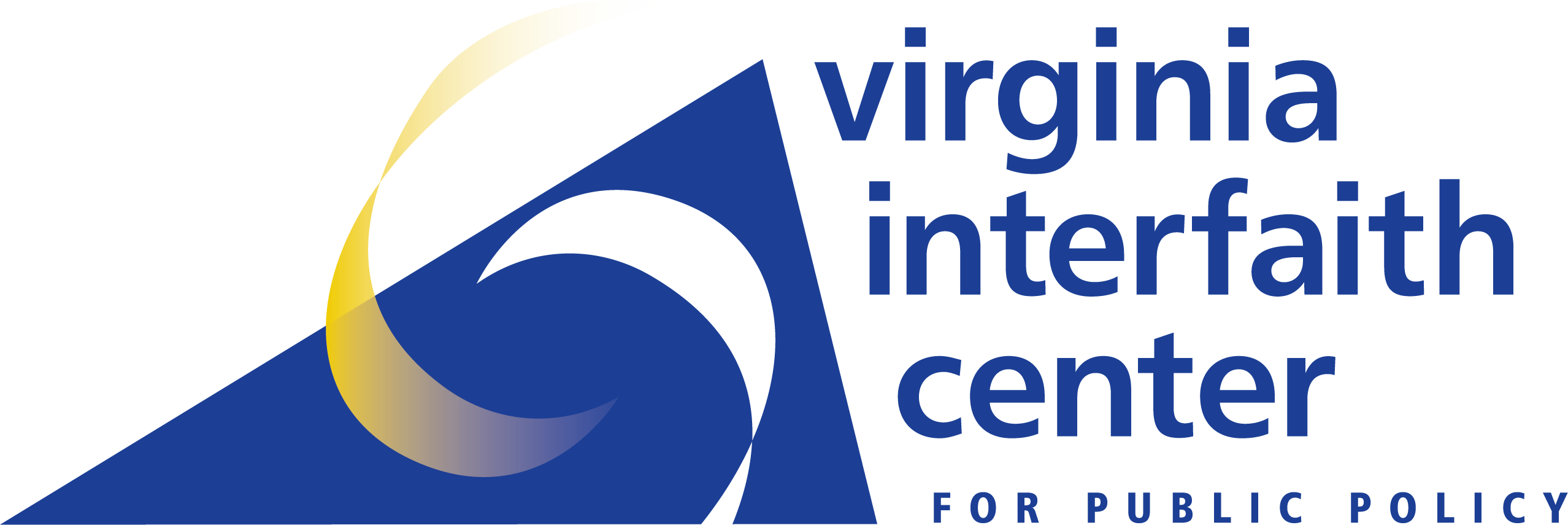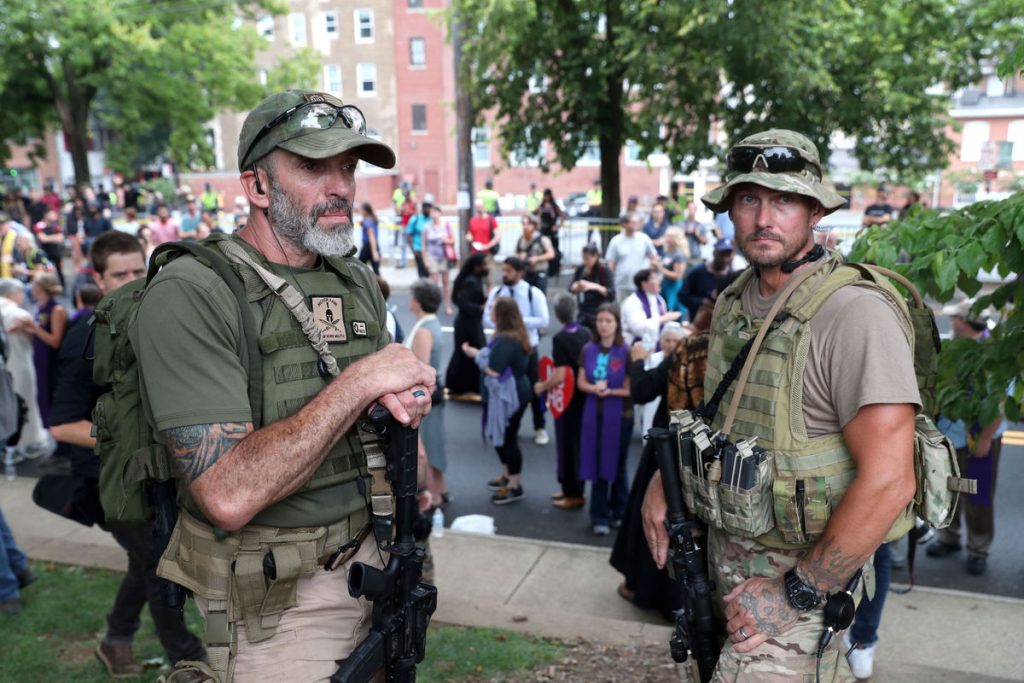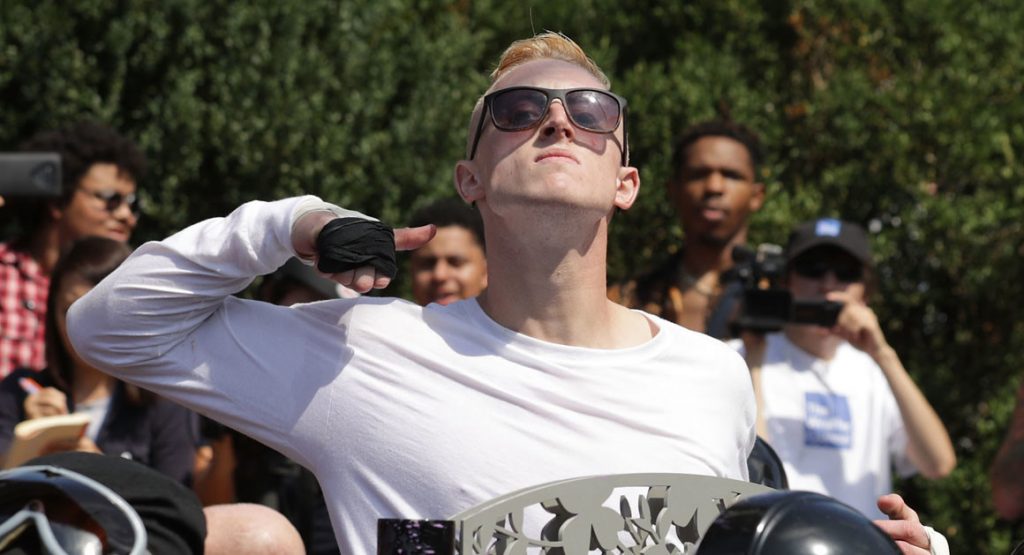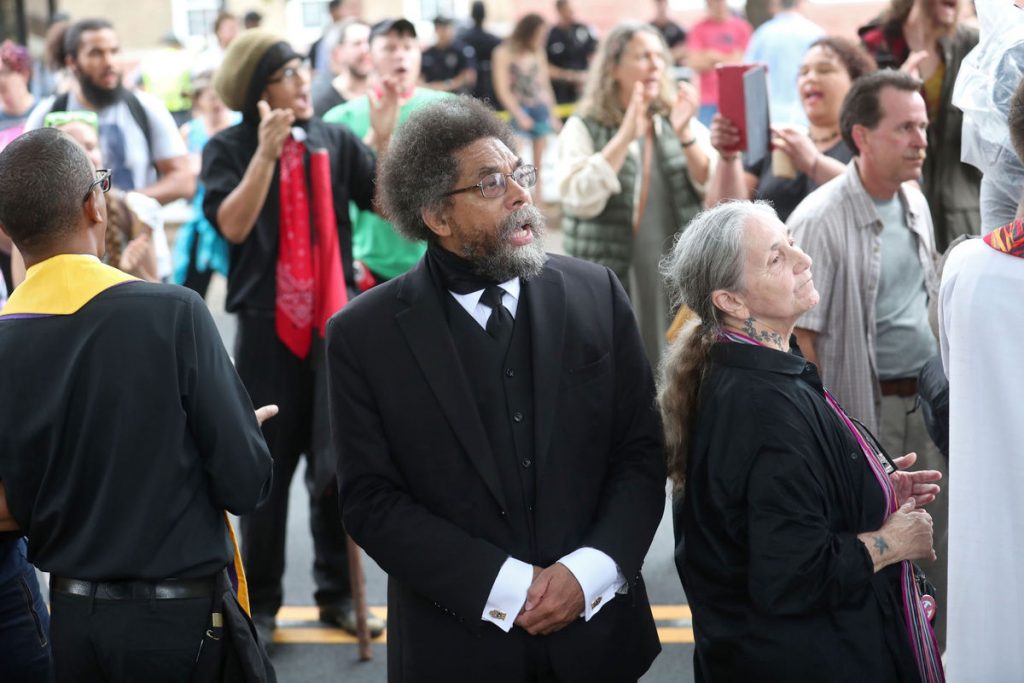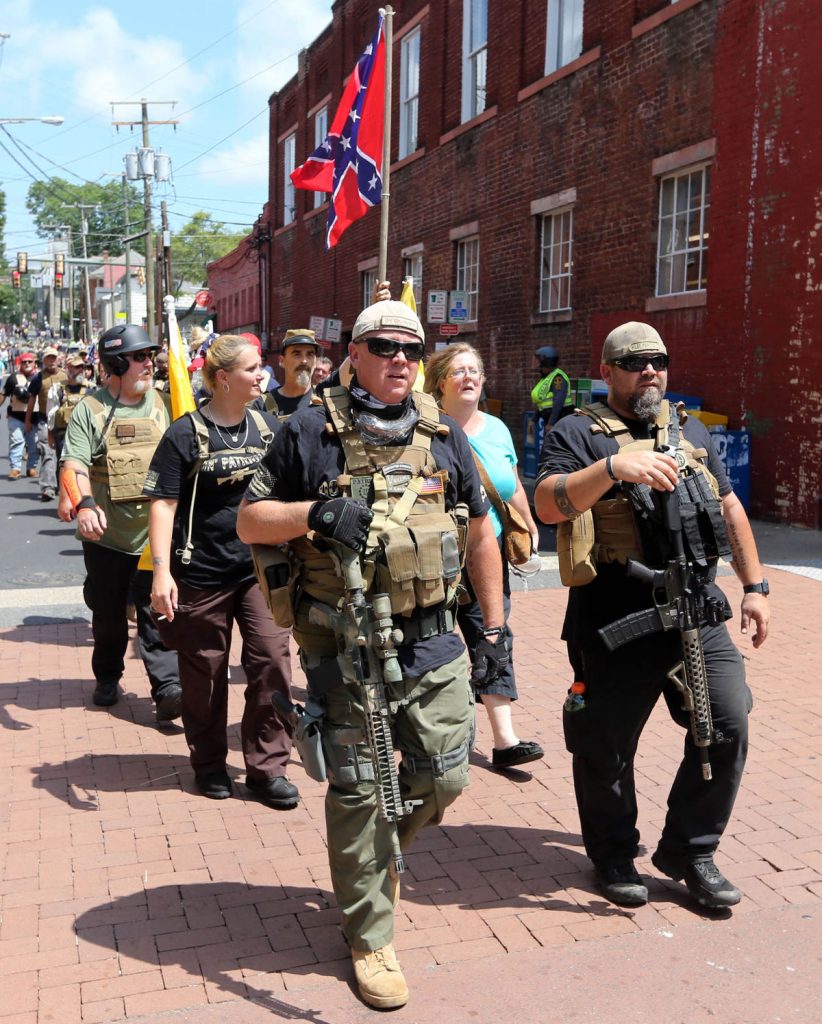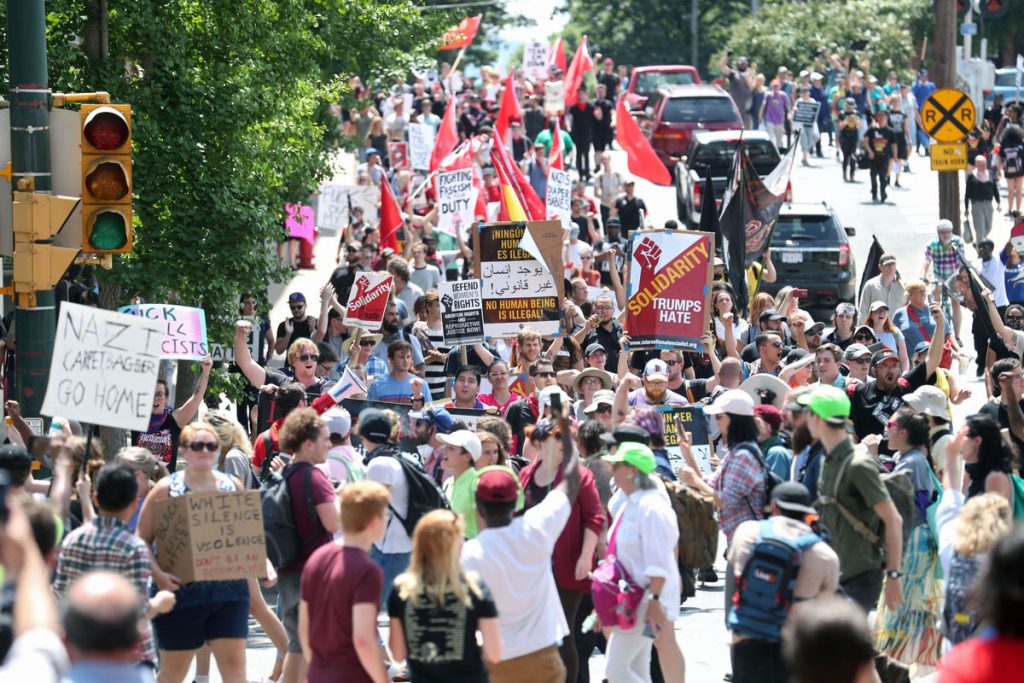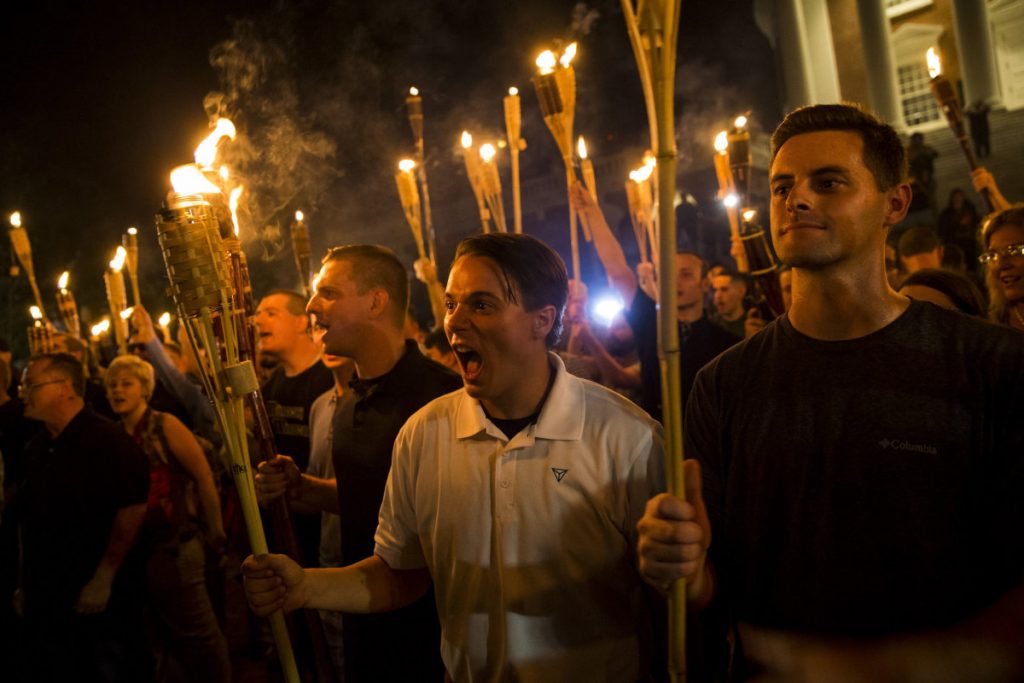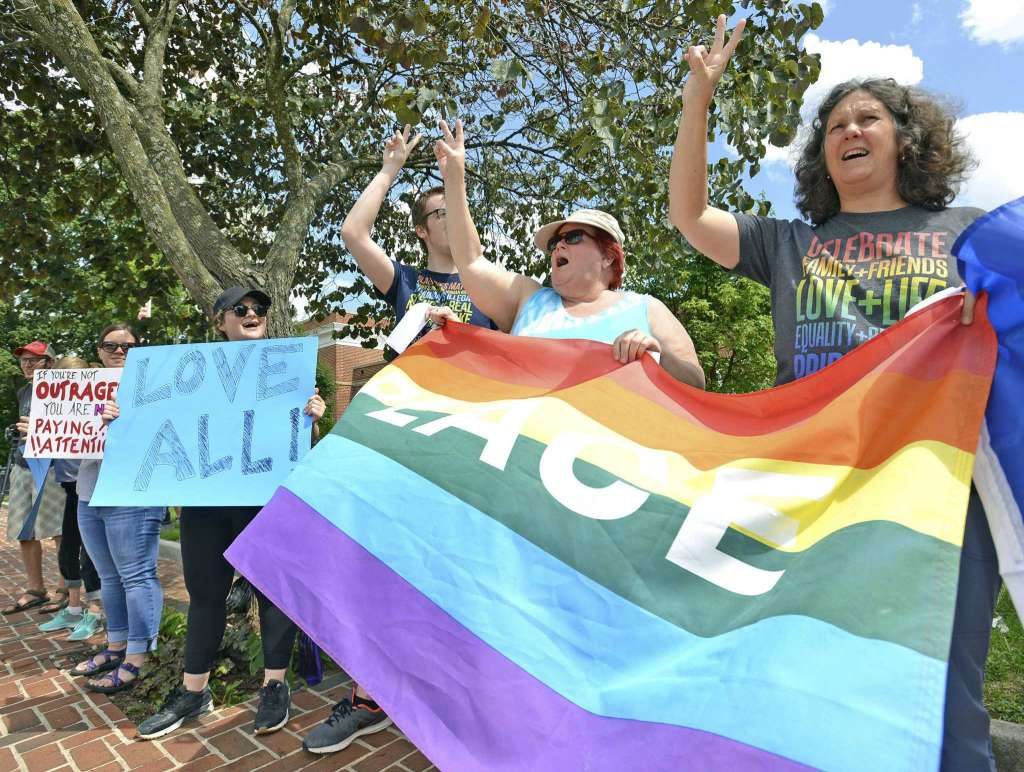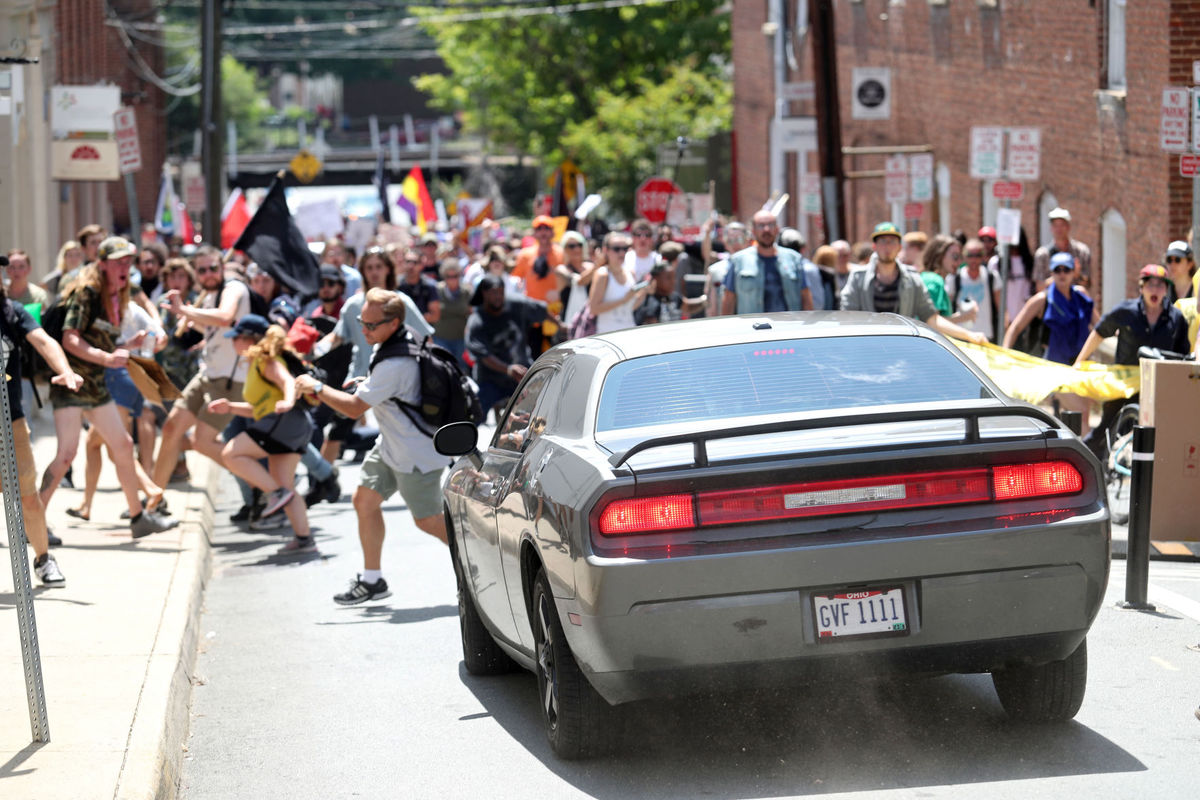
AUGUST 15, 2017
|
Insights
Statements from people of faith on Charlottesville
World Council of Churches:
On Saturday in Charlottesville, one woman died and 19 others were injured when a man who, after rallying with white supremacist groups, rammed his car into a crowd. Earlier in the day, two law enforcement officers lost their lives when their helicopter crashed as they patrolled the building crowds.
On Friday, the movement “Congregate Charlottesville” gathered pastors in a direct, nonviolent action, stating, “Charlottesville has recently become a hotspot for national white supremacist organizations and demonstrations.”
Religious leaders have united across faith lines, states and nations with clear message: they will not ignore racist extremism. They will not do nothing.
The disagreement, in the most simple terms, was sparked over the planned removal of a controversial statue of Confederate general Robert E. Lee. But many regard Charlottesville as a testing point of how the nation will – or will not – confront white supremacy, a history of racism, and the growing inability to participate in civil discourse.
World Council of Churches (WCC) general secretary Rev. Dr Olav Fykse Tveit expressed his condolences to people who are grieving, and called for an end to violence. “Terror and violence against peaceful people seeking justice in Charlottesville must be condemned by all,” he said. “We are proud of moral leadership by clergy and lay people standing against this promotion of racism and white supremacy”. Tveit added “We stand in solidarity with those who continue to use nonviolent means to work against racism and extremism.”
On Saturday night, after a day of violence associated with a white nationalist rally in Charlottesville, the Rev. Brenda Brown-Grooms was praying.
“My heart aches for those who lost their lives and their families who grieve them; for those traumatized at the scene of the hit and run,” she shared. “I am praying for the runaway teen whose family traveled to Charlottesville, hoping to find him among the radicalized alt-right, and persuade him to come home.”
Brown-Grooms, pastor at the New Beginnings Christian Community in Charlottesville, says she comes from people who were enslaved in the state of Virginia. “In order to survive, God gave those who did not succumb to total, utter despair, the ability to see more than their eyes saw; to hear more than their ears heard; and hearts to hope past all hope.”
As pastors came to the pulpit on Sunday, she believed they would allow God to remind God’s people, that “weeping may endure for the night, but joy comes in the morning.”
The pilgrimage of justice and peace takes courage: As the chaos unfolded, the Rev. Al Horton, senior pastor at the First United Methodist Church in Charlottesville, found himself in a role of emergency responder. “First United Methodist Church opened its doors and hearts to those who sought refuge from the mayhem, offering prayers, water, bandages, and counseling to more than a few terrified people who simply wanted to stand up to those who seek to divide,” he said.
“Clergy from many faith traditions were united in their opposition to the violence and hatred that were being visited upon our community. Their fearless response to the intimidation of flag-waving, baseball bat-wielding hate-mongers is a strong witness to the fact that love will not yield to hate.”
What sparks hope? Perhaps more important, what keeps that hope moving, traveling along a path with people who believe in a pilgrimage of justice and peace, whether in a small city, whole nation, or entire world?
Rev. Elaine Ellis Thomas, associate director at St. Paul’s Memorial Church in Charlottesville and part of the leadership team of the Charlottesville Clergy Collective, believes the answer to these questions lies in the power of love to change minds and turn hearts.
“We are united in our commitment to stand on the side of justice and equity for all people,” she said. “We do not lose hope because of the support and encouragement we have received from around the globe; because so many have come together in these last days; and we know that the power behind us is far greater than the evil that confronts us.”
As world headlines reported on the events of one small city, those who lost loved ones, those who are traumatized, and those have failed to turn away from hate, are in the prayers of many.
Feelings of sadness still permeated the city on Monday. “I can only say that our hearts are broken at the violence and hatred,” said Rev. Liz Emrey, a colleague of Rev. Brown-Grooms at the New Beginning Christian Community in Charlottesville. “This is the time for us to mourn for city and for our country. This is the time for us to reach out and take the hands of everyone around, Including those who came to the rally wanting to stand up for the statue.”
Emrey believes people need to reach out in love to one another. “Anger and hatred have a no place in Charlottesville,” she said. “As part of the faith community, we need to offer a way for everyone to heal. None of us believes that a statue is worth dying for, or killing for.”
“Things have just gotten out of hand,” she said. “We need to have a time to talk together.”
United Methodist Council of Bishops
My shock, dismay and grief over the clashes between white supremacy advocates and counter-protesters in Charlottesville, Virginia, continue to grow. I grieve for the lives lost, and pray for the family of Heather Heyer, the families of the two state troopers killed while monitoring the Charlottesville demonstration from the air, and for the healing of all the injured. I am shocked by the blatant resurgence of white nationalism, neo-Nazism and racially motivated domestic terrorism in the United States. I am dismayed (and frightened) by the animosity, division, extremism and evil that is spiraling out of control in the U.S.
Let there be no excuses or political justification for the evil that was on full display in Charlottesville last Saturday. Nor, let us forget that many such displays of white supremacy, racism and hatred go un-reported or under-reported in many places. White supremacist and neo-Nazi ideologies are abhorrent and entirely inconsistent with the Christian faith.
Jesus called his followers to “love your neighbor.” It is clear this key spiritual imperative means all neighbors without regard to race, color, religion or national origin. And, Paul taught that “enmities, strife, jealousy, anger, quarrels, dissensions and factions” are among many works of the flesh that are antithetical to the kingdom of God. “By contrast, the fruit of the Spirit is love, joy, peace, patience, kindness, generosity, faithfulness, gentleness and self-control.” (Galatians 5: 19-23) These works of the Spirit lead to peace-making and the kingdom of God.
The Social Principles of our United Methodist Church are a clarion call and powerful witness in times such as these. “We affirm that no identity or culture has more legitimacy than any other. We call the Church to challenge any hierarchy of cultures or identities.” (Para. 161A, The Nurturing Community, page 110, 2016 Book of Discipline). And, from Para. 162A The Social Community, page 120: “Racism, manifested as sin, plagues and hinders our relationship with Christ, inasmuch as it is antithetical to the gospel itself … Therefore, we recognize racism as sin and affirm the ultimate and temporal worth of all persons … We commit as the Church to move beyond symbolic expressions and representative models that do not challenge unjust systems of power and access.”
Martin Luther King, Jr. echoed a similar sentiment when he challenged the United States to transform the thin paper of the Declaration of Independence that affirms the self-evident truth “that all men are created equal, are endowed with certain inalienable rights” into thick action.
I pray that the shock, dismay and grief of Charlottesville will be a turning point for the U.S. and even our global United Methodist church. We share collective responsibility to turn our thin words into thick action. We share collective responsibility to break our silence. We share collective responsibility to restore health to the communities and relationship out of which extremism, hatred and racism grow. We share collective responsibility, as followers of the Prince of Peace, to create non-violent communities where people with different political and religious views respect each other. We share responsibility to articulate the vision of the Beloved Community where no person feels endangered on account of their social, racial or cultural identity.
This collective responsibility begins by each of us examining our own hearts for the prejudice that contributes to attitudes of supremacy or hatred, or to violence, or silence or fear. Peacemaking and reconciliation always begins within.
This is the moment for The United Methodist Church and all peoples of faith to be bold in our witness against racism and white supremacy. The vision of the Beloved Community lies not behind us, but before us. I urge us to pray for the Holy Spirit to break through and work through The United Methodist Church to heal our broken world and make tangible, visible the kingdom on earth as it is in heaven.
Bishop Bruce R. Ough, President, Council of Bishops of The United Methodist Church
Virginia Conference United Methodist Bishop Sharma D. Lewis:
Brothers and Sisters,
As we continue to process the disturbing events from Charlottesville, we need to turn to God for understanding, guidance and strength in our next steps.
As Christians and United Methodists, we are to act. Hatred of any kind, including racism, is intolerable. As faithful people, we are commanded to address it by being witnesses and advocated for the marginalized.
Racism remains in the world. While progress has been made, particularly since the days of the Rev. Martin Luther King Jr., we must eliminate racism and not stop until it is irrevocably gone.
As such I as you to do the following:
Pray. Let us pray for the families of Heather Heyer, Lt. H. Jay Cullen and Trooper Berke M. Bates. Let us pray for the injured, especially those still hospitalized. Whether we come together for prayer vigils or rallies, for Charlottesville, the Commonwealth or our country, let the foundation of these be rooted in love and concern.
Witness. We need to stand together as people of God and have our voices heard. Our witness is lost when we as Christians do not stand up and advocate, especially in times like these. We need to denounce white supremacy, neo-Nazis and the KKK. No race is superior to any other, as Christians we know that all persons are created equal in the image of God.
Episcopal Bishops of Virginia about Charlottesville
On Saturday our hearts were broken. An angry group of neo-Nazi and fascist protesters came into Charlottesville armed and armored, looking for trouble. The violence and loss of life suffered in their wake signaled yet another escalation of the hate-filled divisions of our time. The peace of a beautiful university town was shattered. The images that some had of America were broken.
The echoes of the heartbreaking tragedy that was Charlottesville will remain with us for a long time to come. We have every indication that we will be seeing more of this. Angry white supremacists seem already to be organizing to bring their ugly and racist rhetoric to other towns and cities across our Commonwealth and across the United States. Angry resisters are more than ready to meet their violence with violence.
It’s hard to imagine a time when the Church is more needed in the public square. It’s hard to imagine a time when our need would be greater for God to take our broken hearts and break them open for wise, loving and faithful witness in Christ’s name.
As followers of Jesus Christ, we are admonished to heed God’s call to love our neighbors through prayer, through speaking out and through other concrete action for the sake of all, particularly the poor, the oppressed, the judged, the demonized. That witness was on display Saturday in Charlottesville in the peaceful march by hundreds of clergy leaders from Charlottesville, from our Diocese, and from other religious traditions in Virginia and beyond. Such witness must continue.
There will be more rallies and more divisions. We must be prepared to meet those challenges, not with violent confrontation, but by exemplifying the power of love made known in concrete action.
As your bishops, we commit ourselves to action of the kinds we list below. We invite you to join us and to share your actions with us so that we can grow together in wisdom, faithfulness and love.
Whatever we do we may not, we must not, be quiet in the face of evil during this violent era of our lives together.
Faithfully yours,
The Rt. Rev. Shannon S. Johnston
The Rt. Rev. Susan E. Goff
The Rt. Rev. Edwin F. Gulick
The ADAMS Center
ADAMS calls on all public officials and interfaith leaders to continue to condemn the Aug 12, 2017 white nationalist terror attack at the Virginia Anti-Racist Rally in Charlottesville. Our thoughts and prayers are with all those attacked and especially Heather Heyer, who was killed, including state police officers Berke Bates and Jay Cullen, who died in the crash of their helicopter, and all those injured by the terrorist fanatic who drove into a crowd of protesters.
We denounce all manifestations of white nationalist/supremacist hatred and bigotry, in the same way that we have denounced similar actions in past years, by those who falsely claim to be acting in the name of Islam or other religions. Anyone who perpetrates such actions is a vile criminal and needs to be labeled as a terrorist murderer.
We thank Interfaith and Civil Rights groups that are standing up against these groups and sentiments. We also thank Law Enforcement for all their efforts, and Virginia State and Congressional officials for their strong condemnation of this horrific attack.
ADAMS Board Member and Civic representatives had gone to Charlottesville on July 8, 2017 to attend the NAACP event to counter white nationalist and supremacist hatred, and we urge all groups to voice their support for those who denounce this bigotry.
DAMS also condemns the August 5, IED bombing and apparent terror attack hate crime committed against the Minneapolis Mosque. While relieved that nobody was harmed in this attack, we commend the Governor of Minnesota who called this a terrorist action. We also commend all Minnesota civic and Law Enforcement Officials, and Interfaith leaders, for their support for the Minneapolis Muslim community. We appreciate the FBI taking the lead on this investigation, and urge this be investigated as hate and terrorist crime against Americans, with the perpetrators prosecuted accordingly. This is too reminiscent of the January 2017 terrorist hate crime attack on the Quebec City Islamic Cultural Centre that killed 6 people and injured 8. Since 2015 over 128 Mosques have been attacked and dozens of Muslims have been killed in hate crimes, alleged or confirmed, and the FBI reported an increase in hate crimes against Muslims by 67% that year.
We ask all our fellow Americans to share empathy, kindness, and good will to all others, especially those in difficult circumstances, and to further strengthen their bonds and involvement with community law enforcement nationwide. And we ask Almighty God to help our local and national leaders resolve and overcome this hatred.
Virginia Center for Inclusive Communities President & CEO Jonathan C. Zur:
It has been horrifying to see the hateful speech and hate-inspired violence in Charlottesville, Virginia this weekend. My colleagues and I at the Virginia Center for Inclusive Communities emphatically condemn the perpetrators of prejudice. Words and actions motivated by racism, anti-Semitism, homophobia, and other forms of bigotry have no place in our Commonwealth and country. At this critical time, let us renew our commitment to stand together and to work ever more passionately for inclusion, equity, and justice for all.
Sadly, I must admit that the images coming out of Charlottesville this weekend did not shock me. Instead, they reflect patterns of intolerance that have long festered in Virginia and our country. Attendees of the planned “Unite the Right” rally felt comfortable chanting offensive slogans, displaying hateful paraphernalia, and perpetrating violence in public because of teaching and socialization they received long before this weekend’s events. They clearly didn’t fear consequences of being seen espousing their prejudicial beliefs. That means that they believed that their personal and professional networks condone or even support overt bias and bigotry.
Some have claimed that these individuals must have come to the rally from other parts of the country. While it may feel more comfortable to believe that, the same forces and beliefs sadly exist in many parts of Virginia as well. Indeed, this weekend’s events can be directly tied to reports released back in January of a 21% increase in hate crimes reported in the Commonwealth over a one-year period. They are similarly linked to the fact that between 2015 and 2017, the Virginia Center for Inclusive Communities has had to respond to a 1,300% increase in requests for support after incidents of bias, bullying, or discrimination. So if you, like me, are horrified by what you saw in Charlottesville this weekend, then we must be just as horrified by the ongoing presence of hatred and injustice in our communities.
How do we move forward? This is no time for empty platitudes. Rather, it is a time for active work to root out the seeds of intolerance and discrimination. It is time to commit to deep, authentic relationships across lines of difference in the service of true inclusion for all those who experience discrimination and prejudice across our Commonwealth. Earlier this year, the Virginia Center for Inclusive Communities and several partners shared a list of “Ten Things You Can Do to Stand Together” at a community-wide gathering hosted by the Islamic Center of Virginia. Here is an adapted version of those actions in light of this weekend’s tragic events:
-
Speak up and challenge bigotry whenever you see it
-
Talk with your neighbor or someone in your neighborhood you don’t know about why diversity and inclusion is important to all of us
-
Analyze the diversity within your neighborhood, workplace, local school, or house of worship and initiate conversations about where and why there might be a lack of inclusion
-
Read books that help you to learn about the experiences and perspectives of people from different backgrounds – especially those whose voices are often left out of community conversations
-
Learn about our community’s complex history – including the difficult parts – and consider the residue of that history on the present day
-
Write a letter to the editor expressing why you value diversity, equity, and inclusion in your community
-
Contact your elected officials to make sure they know your views, especially about policies that could disproportionately hurt members of marginalized groups
-
Attend community events that expand your understanding and perspective
-
Volunteer with organizations that focus on making our communities more equitable and inclusive
-
Donate to organizations and causes that promote respect, understanding, and justice.
The events of this weekend remind us once again that true inclusion requires all of us to stand together against prejudice, discrimination, and hatred. This list is by no means comprehensive, but it provides some of the many steps that can move our communities closer to being places that are truly inclusive and just. It is also important to emphasize that they also must be ongoing commitments. When the rallies are over, let us not pretend that the hatred has left. Instead, let’s use the experience of this weekend as continued motivation to root out bigotry and prejudice wherever it may be.
This is the moment for positive, vigorous action. Together, we can prove with one voice and with sustained effort that there is no place for hate in Virginia.
Jewish Community Relations Council of Greater Washington
The Jewish Community Relations Council of Greater Washington (JCRC) condemns in the strongest terms Saturday’s violence in Charlottesville, mourns the deaths of an innocent counter-protester and two state policemen and prays for the wellbeing of so many others hurt in the melee. There should be no doubt that these acts of domestic terrorism were the work of white supremacists, neo-Nazis and antisemites whose views and actions are anathema to American values. There were not many sides to the hatred and bigotry on display in Charlottesville, as some have claimed, only from those of the racist and the alt-right, who must clearly be called out for who they are.
We join with the many people of faith in Charlottesville this weekend praying for peace since Friday night, including so many rabbis and Jewish students, but numerous clergy of all faiths, as well. We have particular praise for Virginia Gov. Terry McAuliffe and Charlottesville Mayor Mike Signer, who have both led their fine state and city in the face of this violence but with the determination to call out those truly responsible while trying to maintain calm. Their immediate and unequivocal condemnations of the violence and the motivations of the white supremacists and neo-Nazis behind it should be a model for all public officials, Virginians and for all who seek to lead the commonwealth and nation. We appreciate similar statements from other Virginia elected officials and candidates alike, and hope this weekend will be an impetus for positive election campaign rhetoric.
Lastly, as hateful and despicable as we find all this violence and xenophobia, this extreme racism and intolerance, we are of course struck as a community by some of the particularly vile antisemitism employed this weekend — on signs, in shouted slogans, on television interviews. We continue to defend the right of all Americans to free speech, regardless of how despicable, but not when it is an incitement to violence. In the words of Elie Wiesel: “We must always take sides. Neutrality helps the oppressor, never the victim. Silence encourages the tormentor, never the tormented.” We must work toward peace and tolerance, keeping hatred and bigotry out of Virginia and our nation.
An open letter to U.S. Attorney General Jeff Sessions from the Rev. Dr. Susan Henry-Crowe, General Secretary, General Board of Church and Society, The United Methodist Church
Dear Mr. Attorney General,
From one southern United Methodist to another, I implore you to prayerfully and actively work to protect the civil rights of all people, especially people of color and religious minorities. Your position requires it, and our faith demands it.
As the general secretary of the General Board of Church and Society of The United Methodist Church, I am responsible for advocating for the implementation of the Social Principles and other policy statements of the Church to which we belong.
These Social Principles state, “Racism, manifested as sin, plagues and hinders our relationship with Christ, inasmuch as it is antithetical to the gospel itself” (2016 Book of Discipline, Social Principles ¶162.A). The spiritual and systemic manifestations of racism tear at the heart of our faith and our society. Racism is not only the expression of hate, but it is the perpetuation of economic injustice, enactment of discriminatory housing and education policies, implementation of unjust policing practices, infringements on voting rights and more.
Your position as the attorney general of the United States is responsible for addressing these injustices and upholding the civil rights of all people in the United States. Your call to public service requires an explicit commitment to eliminating racism.
I call upon you to more justly uphold the protections and rights of people of color and religious minorities than what we have seen in your seven-month tenure at the Department of Justice. In addition to the blatant culture of hate and bigotry manifesting across the nation, recent events at the Department of Justice have alarmed many civil rights advocates, especially those within faith communities.
In your work engaging with civil rights and encountering the sin of racism, I appeal to you to be faithful to your United Methodist baptismal vows:
-
To renounce the spiritual forces of wickedness, reject the evil powers of this world, and repent of your sin.
-
To accept the freedom and power God gives you to resist evil, injustice, and oppression in whatever forms they present themselves.
I understand that you have opened a civil rights investigation into the tragedy that occurred in Charlottesville, Virginia this weekend when white supremacists, neo-Nazis, and the KKK terrorized people standing for justice and peace, and attacked a city that did not invite them. In this civil rights investigation – and in the entirety of the work of the Department of Justice – I urge you to prioritize racial equity and justice. To do anything less would be a disservice to the office that you hold, and an affront to our shared faith in Christ.
I will be praying for you and this country,
To send your own letter to Mr. Sessions, click here
Community Relations Council of the United Jewish Federation of Tidewater
The Community Relations Council of the United Jewish Federation of Tidewater is heartbroken and outraged by the violent, racist, anti-Semitic and hate-filled “Unite the Right” rally by white nationalist groups in Charlottesville, Virginia this past weekend. We join with our many national partner organizations who have already condemned both the violence perpetrated and the message of racism, anti-Semitism and xenophobic views we have heard in the past few days.
We appreciate the responses from many elected officials on both sides of the aisle, across the Commonwealth and the country, who have unequivocally condemned the white supremacists and their hatred, bigotry, and violence.
Our national network, the Jewish Council for Public Affairs, which represents more than 125 Community Relations Councils like ours, works tirelessly to build tolerance, civility, and maintain friendships with diverse partners across the country. We join with the JCPA in calling on all people of goodwill to come together in confronting hate and bigotry in all its forms.
“In moments like these, it’s critical that our political leaders speak in a clear voice opposing hatred,” stated Jewish Council for Public Affairs Board Chair Cheryl Fishbein. “What our leaders do and say sets the parameters for the rest of the society.”
We mourn the loss of the lives of Heather Heyer and Virginia State Troopers H. Jay Cullen and Berke Bates. We pray for those injured on Saturday.
We offer the following suggestions as to how we might move forward, provided by some of our most trusted resources:
• Anti-Defamation League offers Lessons to Teach and Learn from ‘Unite the Right’ for those teachers and young people preparing to return to school.
• Virginia Center for Inclusive Communities offers a list of Ten Things You Can Do to Stand Together, reminding us all, that together we can prove with one voice and with a sustained effort that there is no place for hate in Virginia.
• Southern Poverty Law Center offers Ten Ways to Fight Hate: A Community Response Guide, setting out ten principles, along with a collection of inspiring stories of people who worked to push hate out of their communities.
We believe that we must continue to work toward a more just and equitable society in which we can all live together. These values are what make America the great country that it is today.
Warren Lasane, Synod of the Mid-Atlantic
Our Souls are disturbed! Our Spirits are shaken! Yet, we do not lose faith! Presbyterians in the Mid-Atlantic Region are being called to speak out against Hatred, Injustice and Racism of all kind, particularly that which was demonstrated in Charlottesville Saturday. This region (Synod of the Mid-Atlantic) is the largest number of Presbyterians (U.S.A.) in the denomination. Can we use this collective presence for a forceful and visible voice for justice, equality and unity in the midst of Hatred? White supremacists and neo-Nazis marched around the city chanting racist epitaphs. We saw visible symbols and activities, which at one point in history, were conducted in the shadows of the night. We heard the voices of young white men yelling racist words. We saw those carrying torches, Confederate flags and displaying Nazi symbols. One of God’s children was killed resulting from a car ramming the crowd. Two State Troopers died in a helicopter crash responding to the disturbance.
These activities are an affront to this nation. Governor Terry McAuliffe responded forcefully to this matter and so did the Mayor of Charlottesville in their denouncement. It is clear that the President of the United States has chosen not to denounce these activities. Further, it is an affront to Presbyterians alike.
I believe that through the eloquent and poignant words of Teaching Elder Robina Marie Winbush, who wrote Day 4 in the 30 Days with the Belhar Confession, we can see our charge for the days ahead. She wrote, “In so many places throughout the world, humanity finds ways to divide along race, class, caste, ethnicity and other humanly created boundaries. We use these boundaries to create social structures that are committed to maintaining systems of division and hostility. “In both the United
States and South Africa these structures were undergirded by theologies developed by “Christian” theologians who argued that it was God’s intention that humanity be separated, particularly along racial lines and that white supremacy was divinely ordered. The Confession of Belhar denounces such theology as heresy and reminds us that God gave us the gift of unity, even though this unity is often distorted by human brokenness. Therefore, we are called to work for the full realization of this gift. However, unity is not a passive acceptance of unjust systems for the sake of a false peace. It is the
hard work of dismantling the systems that divide and subjugate sisters and brothers and building societies marked by justice and love. We live between the promise of the reign of God in Jesus the Christ and the fulfillment of that reality on earth is it is in heaven.”
Some Challenges for Presbyterians include, but are not limited to the following:
That Teaching/Ruling Elders and members take serious this gift of Unity and work judiciously to denounce racism, white supremacy and the evil acts of all hate groups.
That Presbyteries assist its leadership and congregations to engage in the substantive work of Race and Reconciliation.
That Presbyterians recommit themselves to ecumenical and interfaith work.
That Presbyterians join in advocating for legislative policies that guard against such hatred and provide protection for those the hatred is targeting.
That Presbyterians work for Peace and Unity in the places that you live and have influence.
That Presbyterians Pray without ceasing!
In God’s Grace,
Warren J. Lesane Jr.
Executive and Stated Clerk for the Synod of the Mid-Atlantic
Council of Bishops of the African Methodist Episcopal Church
The Council of Bishops of the African Methodist Episcopal Church condemns the violence that exploded in Charlottesville, Virginia. The “Unite the Right” march was sponsored by white supremacists, white nationalists, and the Ku Klux Klan to protest the removal of a statue of General Robert E. Lee. It was responded to by counter protestors.
The result was a face-off between the two groups marked with punching, kicking, water bottle hurling, racial taunting and even the deployment of chemical sprays. A car plowed into a group of peaceful protesters killing one woman and injuring about 19 others. The driver, James Alex Fields is being held on charges including second degree-murder. A helicopter monitoring the rally later crashed killing two Virginia State Troopers.
There are those who argue that white nationalists have the right to free speech, and in a democracy, we support their right. But what was on display before the nation yesterday was more than free speech. It was an unruly event designed to intimidate and provoke violence. In a word, what happened yesterday was a hate crime and domestic terrorism. It was demonic and does not represent what the United States claims it stands for.
We are also disappointed with the response of President Donald Trump. Let us be clear, this is not a partisan issue, this is a matter of failed leadership. President Trump while condemning hatred and violence, claimed it was on “many sides”, but it wasn’t. This violence was initiated by the white supremacist. We have heard President Trump specifically call out Attorney General Jeff Sessions, Senator Mitch McConnell and come down hard on others, but he did not explicitly condemn white nationalist, supremacist or the Ku Klux Klan. It must be noted that hate crimes have increased since President Trump’s campaign and inauguration.
The Council of Bishops calls upon President Trump at a scheduled Monday press availability, to categorically denounce white supermacist, nationalist and the Ku Klux Klan that threatened to divide our nation. The Council wants to make it clear that he does not want or seeks their support. This would help unite and assure the nation that our president, embraces all the citizens of the United States.
The African Methodist Episcopal Church reaffirms our opposition to hate crimes, racism and anti–Semitism, and calls upon the nation, particularly our national leadership to condemn racism and hatred.
Hate never wins. It never has and it never will.
Bishop McKinley Young, Senior Bishop
Bishop Clement W. Fugh, President, Council of Bishops
Bishop Frank Madison Reid III, Ecumenical & Urban Affairs
Jeffery Cooper, General Secretary/CIO, African Methodist Episcopal Church
National Korean American Service & Education Consortium (NAKASEC)
We at NAKASEC are sickened by the racist events in Charlottesville this past weekend. We condemn this act of domestic terrorism and our hearts go out to the family and friends of Heather Heyer and those who were injured.
Now is the time we must come together. We must speak out and show the unity that this country desperately needs to heal, grow stronger and move forward. On Tuesday, August 15th, NAKASEC, Korean Resource Center, Hana Center, Franciscan Action Network, Church World Service, Disciples Refugee and Immigration Ministries, Faith in Public Life, and UndocuBlack Network with support from 24 endorsing organizations will launch DREAM Action: Our Youth, Our Future.
To become a sponsoring or endorsing organization, visitwww.nakasec.org/act/join.
Ross Catrow, Good Morning RVA:
This past weekend, a white man from Ohio traveled hundreds of miles to Charlottesville with the proximate goal of “protecting” from removal that city’s Confederate monuments. After police declared the angry mob of frothing racists he joined an unlawful assembly, this man used his car to murder 32-year-old Heather Heyer and wound a dozen other people.
Heyer’s death marked a weekend that began with a terrifying torch-lit rally on the University of Virginia’s Lawn. Hundreds of pale and flaccid white supremacists bearing tiki torches shambled about shouting/pleading “You will not replace us.” Eventually, they cornered a dozen or so college students and hurled insults before throwing punches.
At some point, two state troopers died when a helicopter crashed while assisting public safety efforts for the rallies.
After the protests and counter protests in Charlottesville disbanded, the Governor issued a strong statement, telling white supremacists to, “go home”. The Mayor also issued a statement of his own, condemning “the despicable violence carried out today by white supremacists and new-Nazi thugs.” The weekend ended with both the mayor and the governor at the Reconciliation Statue downtown for a prayer vigil and unity rally.
Maybe, like me, you watched these events unfold, saw the entire nation looking at the little town west of us, and thought “When this happens here, what will we do?” It’s a good question. Are we prepared for the terrorism—physical, mental, and emotional—that white supremacists will inflict on our community? Do we trust our leaders—elected and otherwise—to make smart decisions when people and property are at risk? How will those of us privledged enough to never once think about the impact of white supremacists on their lives support those for whom it’s a daily reality?
These aren’t hypotheticals either: The RTD confirmed that a member of the Sons of Confederate Veterans has asked the state for a permit for an event on September 16th at the Lee Circle on Monument Avenue. And last night, a spontaneous group of protestors marched from Abner Clay Park in Jackson Ward to the J.E.B. Stuart Monument. There’s a lot of energy building in town, and I wonder if we’ll take advantage of it. Will Richmond take this opportunity and be a leading voice in the national conversation of racial and social justice? I don’t know, but here are some unsorted thoughts and opinions on what we’ll need to do so.
First, we need strong, visible, and vocal leadership. For now, the governor’s been doing the heavy lifting on this, but I hear that the mayor’s speech at the Reconciliation Statue last night was powerful (I look forward to seeing a video of it—shoot me a link if you find one!). I want to see our city’s leaders—elected, nonprofit, faith community, advocacy, media—move toward directing all of this chaotic energy into making lasting, meaningful change in Richmond. Which means…
Nothing from the last three days should deter the Mayor’s Monument Avenue Commission from their work. If anything, the Commission’s responsibility is now far weightier and its task that much more important. The events in Charlottesville this past weekend have reinforced the fact that Confederate monuments are powerful symbols of racism that white supremacists will literally kill for. There is no place for that in Richmond. I understand that there are political and (possible) legal barriers to taking the monuments down immediately—although other cities around the country are moving forward with removal just fine—but we need to allow the Monument Avenue Commission to discuss a full range of options. This necessarily includes removal. The mayor should immediately expand the scope of the Monument Avenue Commission’s charge to include removal.
Finally, the State and the City have lots of permitting processes and public assembly laws already on the books. Should bigots, racists, Nazis, or even the Sons of Confederate Veterans plan rallies in our City, those processes and laws should be enforced. Like, really, really enforced. The horde of people that descended on Charlottesville this past weekend didn’t show up to peaceably express unpopular opinions; they arrived with weapons and hurt, man-baby egos looking to use violence to terrorize and intimidate. Richmond must use the tools already available to it to prevent, hinder, delay, and constrain these types of dangerous, hateful displays.
Virginia Interfaith Power & Light
Virginia Interfaith Power & Light’s Board of Directors and members are heartbroken over the events we witnessed this past weekend in Charlottesville. We are deeply troubled by the hatred and violence which led to the senseless death of Heather Heyer, who courageously went to Charlottesville to replace hatred with love and to call for the dismantling of white supremacy. We offer our prayers and sympathy to her family, friends, and community, and we are grateful for her life and commitment to the work of justice. We also grieve with all Virginians over the deaths of Lt. Cullen and Trooper Bates and hold their families in prayer, asking for comfort at their loss in the line of duty.
We work every day to advocate for justice, focusing specifically on environmental policies and laws that will protect clean air and water for Virginians. We also work to protect the wonderful gift of the creation, and we do so as an act of worship and gratefulness. These efforts are tightly linked to intersecting justice issues, which impact all of our lives. White supremacy has been called America’s original sin, an ideology that is built on a myth of created superiority of white Europeans and their descendants over all others. We are aware of the many ways in which white supremacy’s tentacles hold our laws, policies, and public debate in a death grip, preventing common sense progress toward justice and equal quality of life for all on this planet. We are painfully aware of the scourge of environmental racism in Virginia, which disproportionately subjects communities of color to polluted air, water, and land.
The ideology that sources white supremacy is a dehumanizing vision that deems Jews, Arabs, Muslims, Native Americans, Africans and African Americans, Latinos and Latin Americans, Asians and Asian Americans, as well as LGBTQ people as subhuman. This myth also makes the rest of creation subject to its caprice, as it supplants the Creator’s purpose for all life with the will of a few. We repudiate this myth.
As people of faith, we commit our efforts toward good works to protect the beautiful gift of life given to us through creation and to the diverse humanity on this planet. We commit ourselves anew on behalf of all Virginians to resist the exploitation and destruction of the environment, to encourage reduction of life-threatening carbon pollution, to insist on renewable energy sources, to extend sustainable practices to faith communities, and to ensure environmental and civil justice for all earth’s inhabitants through the law. We move forward with the faith that this vision of justice and shared abundance will come to fruition when people of goodwill work together with courage and love.
To our Sisters and Brothers in Charlottesville,
We are a faith-based group of environmentalists who are praying with you in your time of grief. We offer these sentiments as a “Balm in Gilead—to make your wounded whole.”
We are heartbroken over the events we witnessed this past weekend in Charlottesville. We are deeply troubled by the hatred and violence which led to the senseless death of Heather Heyer, who courageously went to Charlottesville to replace hatred with love and to call for the dismantling of white supremacy. We offer our prayers and sympathy to her family, friends, and community, and we are grateful for her life and commitment to the work of justice. We also grieve with all Virginians over the deaths of Lt. H. Jay Cullen and Trooper-Pilot, Berke M. M. Bates and hold their families in prayer, asking for comfort at their loss in the line of duty.
We work every day to advocate for justice, focusing specifically on environmental policies and laws that will protect clean air and water for Virginians. We also work to protect the wonderful gift of the creation, and we do so as an act of worship and gratefulness. These efforts are tightly linked to intersecting justice issues, which impact all of our lives. White supremacy has been called America’s original sin, an ideology that is built on a myth of created superiority of white Europeans and their descendants over all others. We are aware of the many ways in which white supremacy’s tentacles hold our laws, policies, and public debate in a death grip, preventing common sense progress toward justice and equal quality of life for all on this planet. We are painfully aware of the scourge of environmental racism in Virginia, which disproportionately subjects communities of color to polluted air, water, and land.
The ideology that sources white supremacy is a dehumanizing vision that deems Jews, Arabs, Muslims, Native Americans, Africans and African Americans, Latinos and Latin Americans, Asians and Asian Americans, as well as LGBTQ people as subhuman. This myth also makes the rest of creation subject to its caprice, as it supplants the Creator’s purpose for all life with the will of a few. We repudiate this myth.
As people of faith, we commit our efforts toward good works to protect the beautiful gift of life given to us through creation and to the diverse humanity on this planet. We commit ourselves anew on behalf of all Virginians to resist the exploitation and destruction of the environment, to encourage reduction of life-threatening carbon pollution, to insist on renewable energy sources, to extend sustainable practices to faith communities, and to ensure environmental and civil justice for all earth’s inhabitants through the law. We move forward with the faith that this vision of justice and shared abundance will come to fruition when people of goodwill work together with courage and love.
Virginia Interfaith Power & Light
get involved
